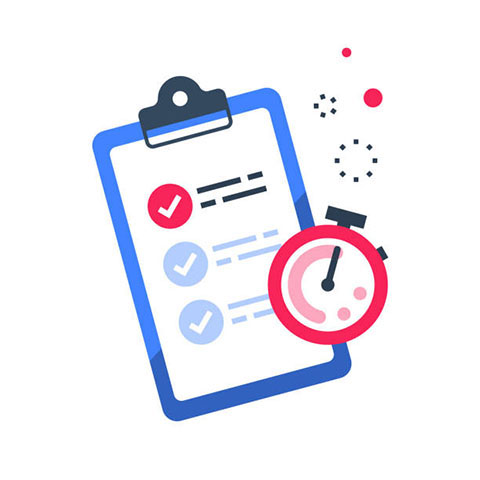
Developing effective strategies to overcome procrastination will improve your self-esteem, mood, productivity and your overall well being.
Procrastination is not a character flaw and there are ways to reduce it and its impact on your life.
Procrastination has been defined as: to “voluntarily delay an intended course of action despite expecting to be worse off for the delay.” (Piers Steel, 2007)
Procrastination can be an impediment to success, can increase anxiety and depression, and lower self-esteem. A person who frequently procrastinates is prone to poor performance, lower exam scores, slower job promotions, and poorer health. Often the procrastinator is well aware of the negative effects of their procrastination, along with experiencing feelings of shame and guilt.
So with all these clear pain points, why do we still procrastinate?
Understanding contributing factors can be key to reducing your procrastination. Let’s examine what external and internal factors may make you more likely to procrastinate.
Key External Factors Influencing Procrastination
Research suggests that the main external factors for procrastination are:
- Clarity of task instructions
- Task aversiveness
- Temptation
- Incentives
- Accountability
You may think that you don’t have much control over these “external” factors, but you do!
Importance of Clear Task Instructions
If you have a task for which you are not clear on what you are supposed to do, immediately ask for clarifications. We often think we “should” know how to do something but there is a first time for everything. Getting clarifications removes a huge stumbling block to getting started. Immediately is emphasized here because frequently a procrastinator will wait until it is too late to realize that they need clarifications or more information (2 a.m. is not the best time to get responses from colleagues, teachers, friends, etc.!).
Overcoming Task Aversiveness
If this is a task that is really not your cup of tea, bring in all the support that you can to help get you through this. (See my tips list for reducing procrastination).
An important first consideration when you are very averse to a task is to determine if you have to be the one to do this task.
If this is something in your personal life, perhaps this is something that you can outsource or do a trade with a friend or family member.
If it is a career related task, can you negotiate your job responsibilities to not include this task? If this task is a big part of your job, are you in the right career for you?
Managing Temptations and Distractions
Temptations are distractions that divert attention from important tasks to more immediately rewarding activities. A procrastinator might find themselves doing other more interesting tasks instead of working on a deadline-driven project.
Leveraging Incentives to Boost Motivation
Incentives are rewards or consequences that influence the motivation to complete tasks. If the immediate reward for finishing a task is not compelling, a procrastinator might delay starting it. Conversely, a strong positive incentive (like a bonus for early completion) can motivate timely action. Interestingly, for those with ADHD sometimes a punishment or a important loss of some kind can be more of an incentive to get their work done.
The Role of Accountability in Procrastination
Accountability involves the presence of someone to whom the procrastinator feels responsible. A person is less likely to procrastinate if they have to report their progress to a supervisor or a colleague, as this external pressure helps them stay on track.
Two Major Internal Factors Behind Procrastination
The two most prevalent internal factors that play into one’s degree of procrastination are impulsivity and emotional regulation.
How Impulsivity Drives Procrastination
A 2015 research paper on the factors related to procrastination found that impulsivity is one of the strongest predictors of procrastination. Studies have found a genetic overlap between impulsivity and procrastination, indicating that both traits may share a common cognitive ability, specifically goal-management ability. This overlap suggests that procrastination might be an evolutionary by-product of impulsivity.
Impulsivity includes four components (as defined by the UPPS model of Whiteside and Lynam, 2001):
- Urgency: Tendency to act rashly under emotional distress
- Premeditation: Consideration of consequences before acting
- Perseverance: Ability to stay focused on tasks
- Sensation Seeking: Pursuit of new and exciting activities
The Impact of Emotional Regulation on Procrastination
Emotional regulation and procrastination are interlinked. When faced with intense emotions, procrastinators may engage in activities other than the intended task in an attempt to improve their mood. Managing their immediate mood feels like more of a priority in the moment over pursuing long-term goals. However, this failure (or delay) to get work done on their intended task ultimately worsens their mood.
The role of urgency (acting rashly under emotional distress) for procrastinators is at fault here. Interestingly, both positive and negative urgency (acting rashly under positive or negative emotional states) can contribute to procrastination. Sometimes a really good mood can cause someone to neglect the goals they had set for themselves that day.
Procrastinators typically exhibit poor cognitive emotion regulation strategies. This means they struggle with the thoughts and mental strategies needed to regulate their emotions effectively. There is a strong association between procrastination-specific rumination (repetitive, negative thinking about one’s tendency to delay) and procrastination. This form of rumination can also worsen the procrastinator’s emotional state, which in turn leads to more procrastination, creating a vicious cycle.
A study on the relation between emotional regulation skills and procrastination from 2016 concluded:
- Improving the ability to change negative emotions reduces future procrastination
- Frequent procrastination decreases the ability to tolerate negative emotions
- Development of emotion regulation skills to tolerate and modify negative emotions leads to an overall reduction in procrastination
All of this underscores the importance of emotion regulation for those who struggle with procrastination. See my article Improving Emotional Regulation Skills.
Practical Solutions to Overcome Procrastination
Read through the external and internal procrastination factors above to determine which of these factors are most influencing when, how and where you procrastinate. For each situation in which you procrastinate, use my printable List of Best Tips to Reduce Procrastination to find solutions to reduce the reason for each of the situations in which you procrastinate.
Recognizing the root of procrastination involves self-reflection and understanding one’s habits, thoughts, and feelings. Here are some steps and questions to help identify your underlying causes.

Steps to Identify the Root Cause of Procrastination
Self-Observation
Pay attention to when and how often you procrastinate. Note the types of tasks you delay and your thoughts and feelings at those times.
Keep a Reflective Task Journal
Keep a journal where you record instances of procrastination, what you were supposed to do, what you did instead, and how you felt about it. Also track your successes! Note the factors that you believe played into your success in completing the part of the task at which you succeeded.

Key Questions to Ask Yourself to Identify Procrastination Triggers
Task-Related Questions
- Do I find this task boring or uninteresting?
- Is this task overwhelming or too complex?
- Am I unclear about how to start or what steps to take?
Emotional Questions
- Am I afraid of failing or not doing it perfectly?
- Do I feel anxious or stressed when I think about this task?
- Do I have negative beliefs about my ability to complete this task?
Behavioral Questions
- Am I easily distracted by other activities?
- Do I often choose immediate rewards over working on this task?
- Do I frequently forget about tasks or deadlines?
Cognitive and Organizational Questions
- Do I have trouble organizing and prioritizing tasks?
- Do I struggle with estimating how long tasks will take?
- Do I often start tasks late or leave them unfinished?
Final Thoughts: Understanding and Addressing Procrastination
Procrastination isn’t a character flaw; it’s a complex behavior influenced by various factors. Tackling procrastination requires understanding the factors that drive it.
Elements like task clarity, task aversiveness, temptations, incentives, and accountability all play a role. Impulsivity and emotional regulation are critical internal factors to be aware of and to manage.
Using observation and self-reflection techniques, you can learn to identify your unique root causes and triggers for procrastination, and adopt effective strategies to lessen the impact that procrastination has on your life, your self esteem, and your overall well being.
See my tips list for reducing procrastination for practical ideas that you can being to use right away to lessen procrastinating behaviours.










